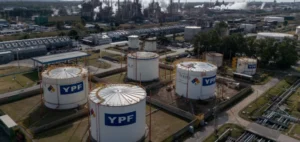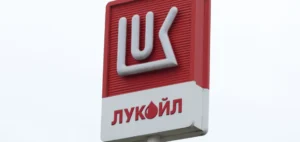Ithaca Energy, an emerging player in the North Sea, has completed the acquisition of nearly all of Eni’s British oil and gas assets. This operation, valued at £754 million (US$993 million), excludes Eni’s assets in the Irish Sea and the company’s carbon capture and storage (CCUS) projects. Executed through a share exchange, this transaction marks a strategic turning point for both companies, strengthening their presence in a transitioning region.
For Ithaca Energy, this acquisition represents a significant growth lever. Originally held 82.7% by the Israeli group Delek, Ithaca now sees its stake reduced to 50.7%, welcoming Eni as a reference shareholder. By integrating Eni’s British assets, Ithaca significantly enhances its production capacities and reserves, positioning itself as one of the largest independent producers in the region.
Strategic Appointment
The appointment of Luciano Vasques, former CEO of Eni UK, as CEO of the new entity, demonstrates the desire to harmonize the two groups around common strategic priorities. This change in leadership underscores the potential synergy of the acquisition, with Ithaca now benefiting from Eni’s expertise and support for its future operations.
The agreement is part of Eni’s so-called “satellite” strategy, where the Italian group segments its assets into distinct entities, specialized by geographic zones, in order to attract targeted investors. This approach allows Eni to optimize the valuation of its portfolio while maintaining flexibility to adjust its regional investments.
Eni’s Satellite Strategy
Examples of this strategy are multiple. In addition to Ithaca, Eni has recently created Azule Energy, a joint venture with BP focused on Angola, and Vår Energi, a Norwegian company formed with a private equity fund. These joint ventures allow Eni to diversify its risks while leveraging local or regional partners, thereby maximizing profitability in complex environments.
As a shareholder of Ithaca, Eni maintains strategic exposure to the British market while transferring the responsibility for daily operations to a more agile and locally established player. This allows the Italian company to maintain its presence in a key region while focusing on higher-growth potential opportunities in other regions.
Consolidation in the North Sea
This transaction highlights a fundamental trend in the North Sea: the rise of independent companies. Major oil companies, faced with aging fields and high operating costs, are opting for gradual disengagement, thereby making way for smaller and more specialized players capable of leveraging these mature assets.
For Ithaca, this situation creates an opportunity to become a central player in a region historically dominated by large companies. By acquiring large-scale assets, the company is better positioned to play a key role in consolidation efforts, especially if other independents or financial investors seek to enter this market.
Implications for Energy Transition
The agreement comes amid a context of re-evaluation of strategies by companies in the North Sea, facing increasing regulatory pressures and decarbonization policies. The region must now balance energy production with climate commitments, making investment decisions complex.
By retaining its CCUS activities outside of this transaction, Eni demonstrates its willingness to continue investing in energy transition solutions for the region. CCUS is considered a crucial lever for achieving the North Sea’s climate goals, which could lead Eni to explore new collaborations with Ithaca in this segment in the future.
Market Reactions
For the market, Eni’s entry into Ithaca’s capital creates a particular situation. The Italian company can now influence the strategy of the independent, while providing substantial financial and operational support. This alliance could reduce Ithaca’s cost of capital, facilitating the financing of new projects, whether oriented towards traditional oil exploitation or the integration of decarbonization technologies.
As for Eni, this operation allows it to streamline its portfolio while maintaining strategic influence in a key region. This transaction solidifies Ithaca Energy’s position as a major player in the North Sea and paves the way for a new era of managing mature assets.






















